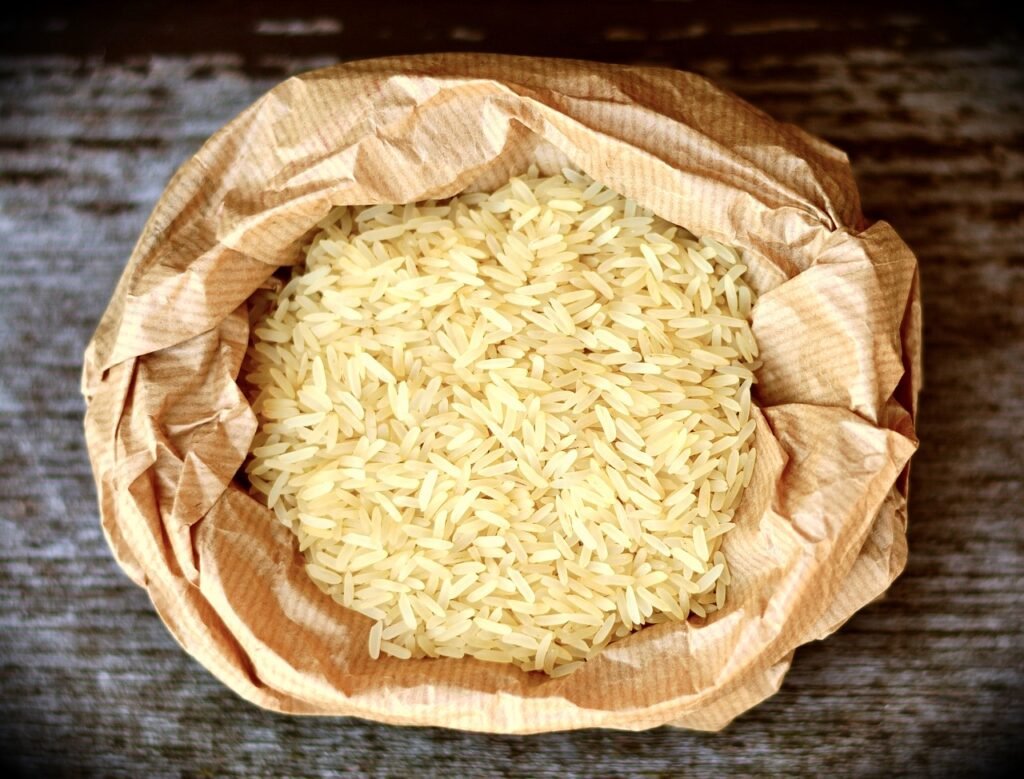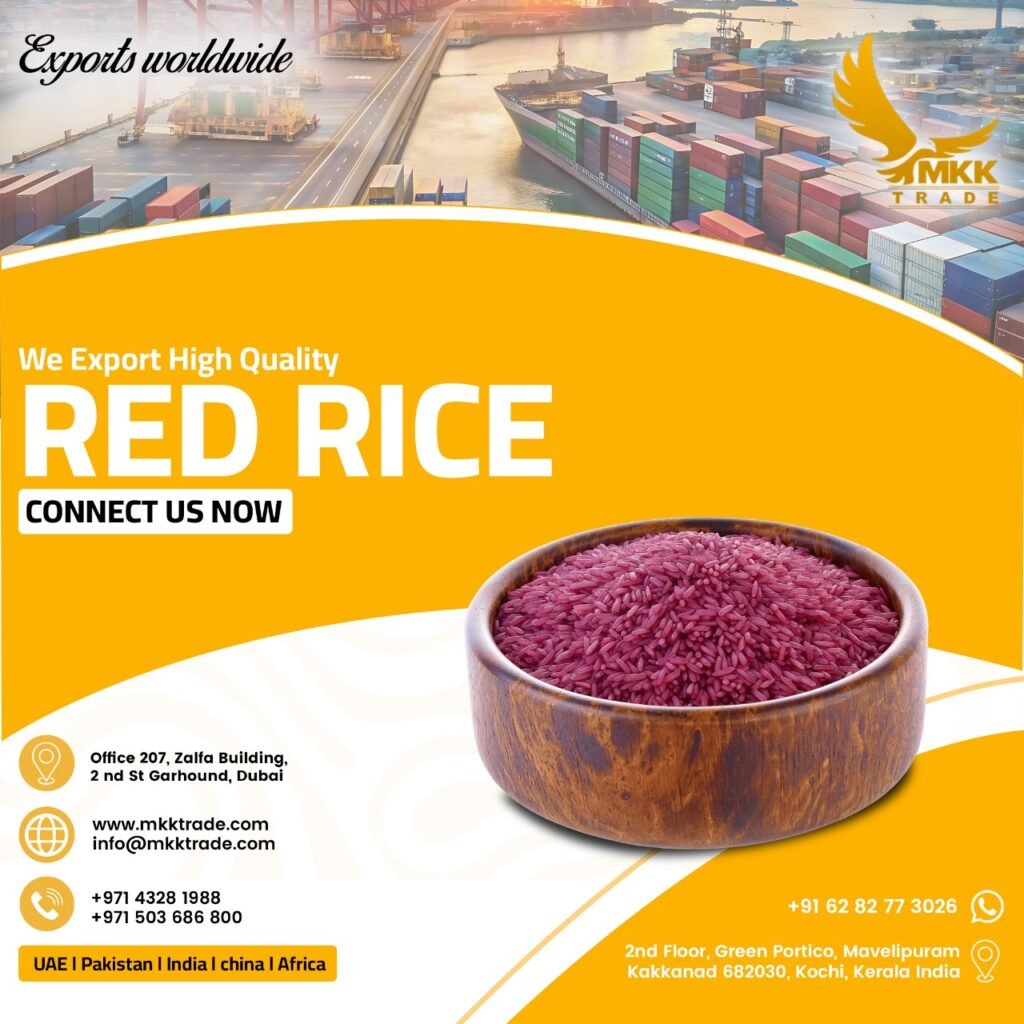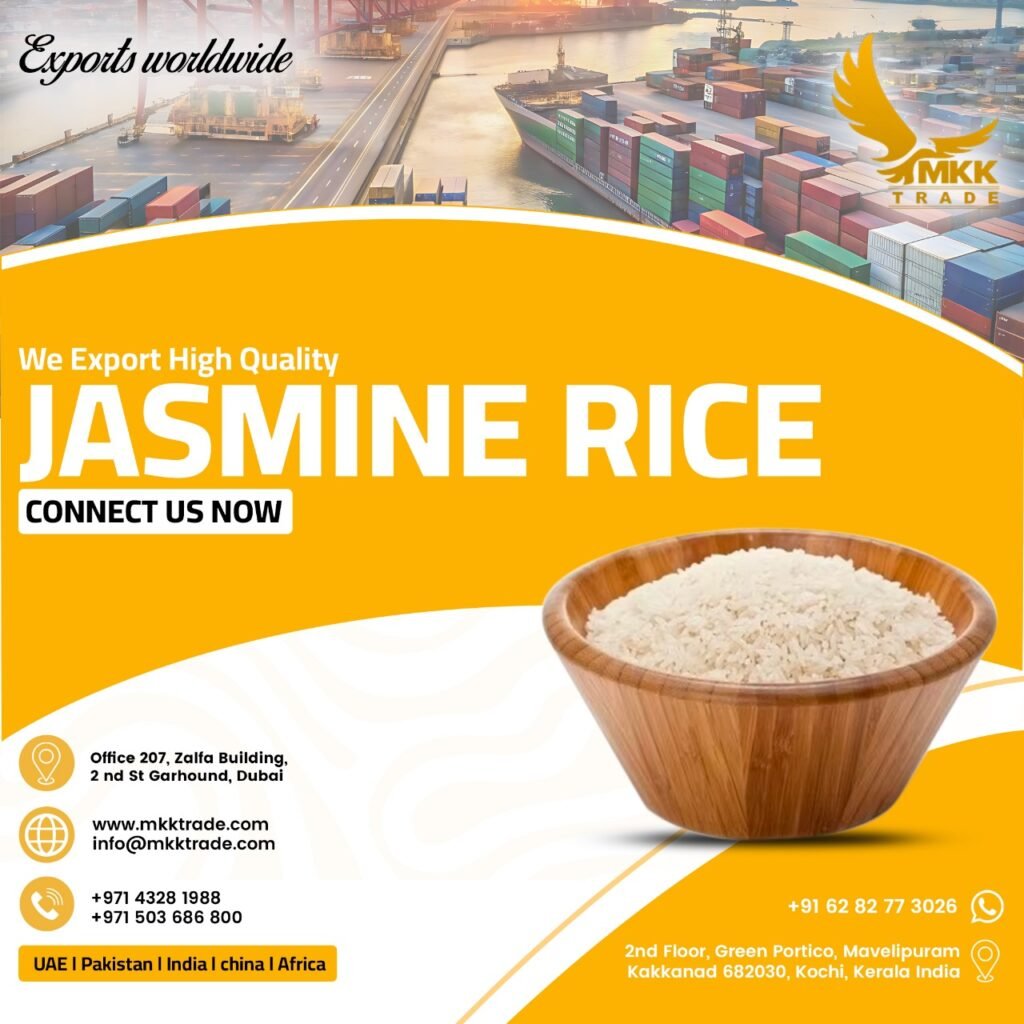Office #207-2nd Floor-ZALFA BUILDING-NEAR Jumeirah Creekside Hotel-Garhoud -Dubai UAE
MKK Trade offers a diverse range of rice varieties to cater to both premium and mass-market customers.
1. Basmati Rice
MKK Trade specializes in premium Basmati rice, one of the most sought-after rice varieties worldwide. Known for its distinct aroma, long grain, and fluffy texture, Basmati rice is a staple in Middle Eastern, Indian, and Southeast Asian cuisines. MKK offers various types of Basmati rice, including aged Basmati, which is highly prized for its enhanced fragrance and superior cooking quality. Basmati rice is commonly used in dishes like biryani, pilaf, and as a side dish to curries.
2. Sona Masoori Rice
MKK Trade also exports Sona Masoori rice, a medium-grain, non-Basmati rice variety that is widely popular in India and internationally. Known for its lightweight, aromatic qualities, Sona Masoori is often used in daily meals, especially in South Indian cuisine. It is commonly served with curries, stir-fries, and is ideal for making pulao or khichdi. Sona Masoori rice is favored for its affordability and versatility in cooking.
3. IR 64 Rice
Another major rice variety exported by MKK Trade is IR 64 rice, a popular non-Basmati variety known for its high yield and affordability. It is a medium-grain rice that is commonly used in countries across Africa, Southeast Asia, and the Middle East. Its slightly sticky texture when cooked makes it suitable for a variety of dishes, including plain rice, curries, and fried rice. IR 64 rice is a preferred choice for bulk shipments due to its cost-effectiveness.
4. Jasmine Rice
MKK Trade provides Jasmine rice, an aromatic long-grain rice variety grown primarily in Thailand. This rice is known for its delicate floral fragrance and slightly sticky texture when cooked. It is often used in Southeast Asian dishes like Thai curries, stir-fries, and as a side dish. Jasmine rice is a favorite for both commercial and consumer markets due to its unique flavor profile.
5. Organic Rice
As part of its commitment to sustainability, MKK Trade offers organic rice varieties, including organic Basmati and Sona Masoori rice. Grown without the use of synthetic fertilizers and pesticides, organic rice appeals to health-conscious consumers and those seeking eco-friendly food options. Organic rice is gaining traction in global markets due to the increasing demand for healthy, environmentally sustainable food products.




